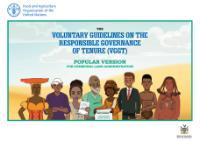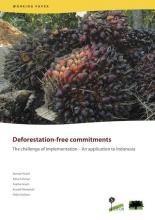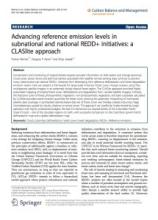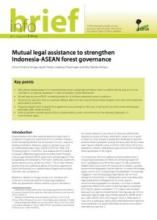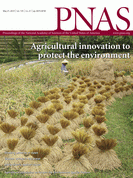Land Library Search
Through our robust search engine, you can search for any item of the over 73,000 highly curated resources in the Land Library.
If you would like to find an overview of what is possible, feel free to peruse the Search Guide.
/ library resources
Showing items 1 through 9 of 12.The VGGT Popular Version for Communal Land Administration was developed to support the Parliament of Namibia in delivering training to traditional authorities and regional institutions to enhance their capacity to administer communal land within their jurisdictions.
Increasing global demand for natural resources is intensifying competition for land across the developing world, pushing companies onto territories that many Indigenous Peoples and rural communities have
The deforestation-free movement (or zero-deforestation) has emerged recently in a context of lower state control, globalization and pressure on corporations by nongovernmental organizations (NGOs) through consumer awareness campaigns, acknowledging the essential role of agricultural commodities
El presente Decreto, considerando que la racionalización y simplificación del ordenamiento jurídico es una de las principales herramientas para asegurar la eficiencia económica y social del sistema legal y para afianzar la seguridad jurídica, y que constituye una política pública gubernamental la
The International Union for Conservation of Nature (IUCN), in partnership with the Ugandan Ministry of Water and Environment, United Nations Development Programme (UNDP), and the United Nations Environment Programme (UNEP), as well as local governments and
The report confirms that mangroves are among the most carbon-rich ecosystems in the world and seeks to provide the basis for their sustainable management, conservation and restoration.
The women Land Rights Project is a project of Kenya Land Alliance that aims at actualisation Women land and property rights, as provided in the Constitution of Kenya, 2013 and as a means towards poverty alleviation.
CIFOR Infobrief no. 77
“Landscape approaches” seek to provide tools and concepts for allocating and managing land to achieve social, economic, and environmental objectives in areas where agriculture, mining, and other productive land uses compete with environmental and biodiversity goals.

